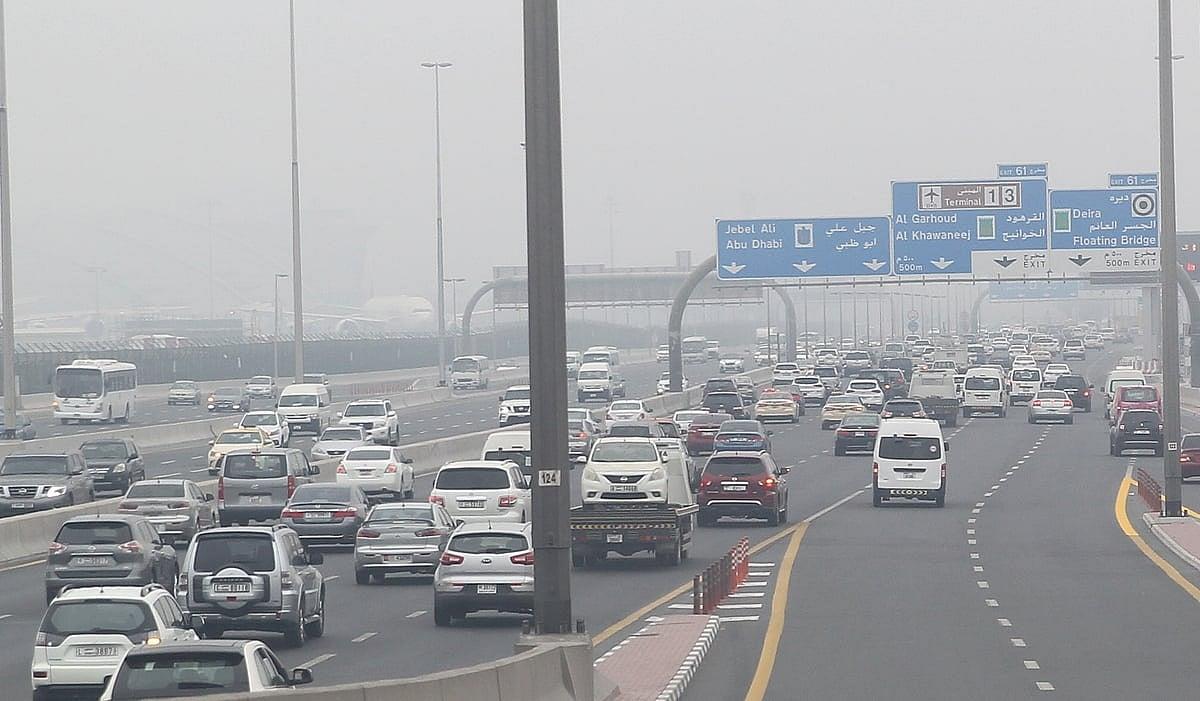
On Tuesday, the Minister of energy and Infrastructure proposed that new policies were needed to deal with the increasing number of vehicles and traffic congestion. He suggested updating policies regarding car ownership rules and introducing new modes of transport and the development of new roadways. According to Suhail Al Mazrouei, Minister of Energy and Infrastructure, the number of vehicles on the road has exceeded 8 per cent, far past the global rate of 2 per cent, in which the minister described it as“abnormal.
” Mustafa Aldah, Founder of MA Traffic Consulting, said while speaking to Khaleej Times that he does not think that this growth rate is sustainable. Stay up to date with the latest news. Follow KT on WhatsApp Channels.

Restricting access to vehicles Aldah said that this is“a sign of good things to come,” when noting the ministry's proposals. He then added that it will be challenging to find a solution that“will harmonise traffic between the two emirates [Sharjah and Dubai] at peak times” because of the different patterns of traffic and mix of vehicles on roads. Aldah said that motorised vehicles are very accessible in the UAE.
"So, maybe restricting that a little bit we will reduce congestion on the roads, that's one theory.” He added that another potential solution could be expanding public transport and increasing its capacity. In the Republic of Singapore, a system of Certificate of Entitlement (COE) was introduced and implemented in 1990 to manage the increasing number of vehicles on the roads.
A COE license is required for each vehicle and is obtained from a bidding, which gives an individual the right to own a vehicle for up to 10 years. Commenting on this, Aldah called it a“contentious issue,” because“the Singaporean population has been conditioned to car restrictions for a very long time, whereas our population is very new to this, so I suspect the authorities will want to go easy to begin with.” Two per car Founder and Managing Director of RoadSafetyUAE Thomas Edelmann said he is“not sure if car ownership rules (for example regulated by high taxes like in some densely populated cities already in place) would suit the UAE.
” But, he added, limiting the number of vehicles would be beneficial. Edelmann suggested a minimum number of passengers in a vehicle during rush hour on key arterial roads, for example two people in one car. He said that there could be a focus on“aggressively investing in public mass transportation,” as well as the“mandatory use of school buses instead of individual school runs in private cars,” to reduce traffic congestion.
“Dedicated carpooling lanes for vehicles with more than 2 people on board could be introduced and this could be an incentive to increase the number of occupants per vehicle,” he added. Edelmann said that in a survey his company conducted in 2020, it was found that 83 per cent of UAE residents depended on cars, whereas, only 13 per cent used public transportation. More than half (67 per cent) used their cars to commute to and from their workplace.
He suggested that people could try reducing the number of trips they take in their cars, including for work purposes. MENAFN20032025000049011007ID1109335736 Legal Disclaimer: MENAFN provides the information “as is” without warranty of any kind. We do not accept any responsibility or liability for the accuracy, content, images, videos, licenses, completeness, legality, or reliability of the information contained in this article.
If you have any complaints or copyright issues related to this article, kindly contact the provider above..














